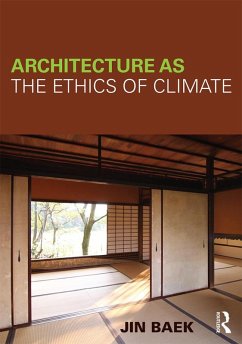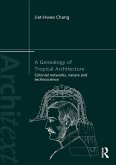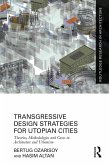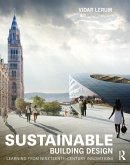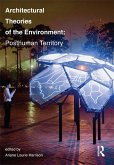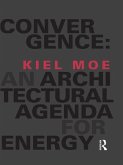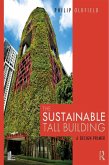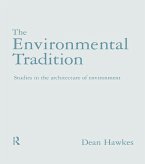Jin Baek
Architecture as the Ethics of Climate (eBook, PDF)
49,95 €
49,95 €
inkl. MwSt.
Sofort per Download lieferbar

25 °P sammeln
49,95 €
Als Download kaufen

49,95 €
inkl. MwSt.
Sofort per Download lieferbar

25 °P sammeln
Jetzt verschenken
Alle Infos zum eBook verschenken
49,95 €
inkl. MwSt.
Sofort per Download lieferbar
Alle Infos zum eBook verschenken

25 °P sammeln
Jin Baek
Architecture as the Ethics of Climate (eBook, PDF)
- Format: PDF
- Merkliste
- Auf die Merkliste
- Bewerten Bewerten
- Teilen
- Produkt teilen
- Produkterinnerung
- Produkterinnerung

Bitte loggen Sie sich zunächst in Ihr Kundenkonto ein oder registrieren Sie sich bei
bücher.de, um das eBook-Abo tolino select nutzen zu können.
Hier können Sie sich einloggen
Hier können Sie sich einloggen
Sie sind bereits eingeloggt. Klicken Sie auf 2. tolino select Abo, um fortzufahren.

Bitte loggen Sie sich zunächst in Ihr Kundenkonto ein oder registrieren Sie sich bei bücher.de, um das eBook-Abo tolino select nutzen zu können.
This book explores the notion of climate itself, its relationship with human culture, and its significance to architecture and urbanism by referring to the environmental philosophy of Tetsuro Watsuji, a leading thinker of modern Japan.
- Geräte: PC
- mit Kopierschutz
- eBook Hilfe
- Größe: 2.73MB
Andere Kunden interessierten sich auch für
![A Genealogy of Tropical Architecture (eBook, PDF) A Genealogy of Tropical Architecture (eBook, PDF)]() Jiat-Hwee ChangA Genealogy of Tropical Architecture (eBook, PDF)49,95 €
Jiat-Hwee ChangA Genealogy of Tropical Architecture (eBook, PDF)49,95 €![Transgressive Design Strategies for Utopian Cities (eBook, PDF) Transgressive Design Strategies for Utopian Cities (eBook, PDF)]() Bertug OzarisoyTransgressive Design Strategies for Utopian Cities (eBook, PDF)41,95 €
Bertug OzarisoyTransgressive Design Strategies for Utopian Cities (eBook, PDF)41,95 €![Sustainable Building Design (eBook, PDF) Sustainable Building Design (eBook, PDF)]() Vidar LerumSustainable Building Design (eBook, PDF)49,95 €
Vidar LerumSustainable Building Design (eBook, PDF)49,95 €![Architectural Theories of the Environment (eBook, PDF) Architectural Theories of the Environment (eBook, PDF)]() Architectural Theories of the Environment (eBook, PDF)49,95 €
Architectural Theories of the Environment (eBook, PDF)49,95 €![Convergence: An Architectural Agenda for Energy (eBook, PDF) Convergence: An Architectural Agenda for Energy (eBook, PDF)]() Kiel MoeConvergence: An Architectural Agenda for Energy (eBook, PDF)49,95 €
Kiel MoeConvergence: An Architectural Agenda for Energy (eBook, PDF)49,95 €![The Sustainable Tall Building (eBook, PDF) The Sustainable Tall Building (eBook, PDF)]() Philip OldfieldThe Sustainable Tall Building (eBook, PDF)42,95 €
Philip OldfieldThe Sustainable Tall Building (eBook, PDF)42,95 €![The Environmental Tradition (eBook, PDF) The Environmental Tradition (eBook, PDF)]() Dean HawkesThe Environmental Tradition (eBook, PDF)71,95 €
Dean HawkesThe Environmental Tradition (eBook, PDF)71,95 €-
-
-
This book explores the notion of climate itself, its relationship with human culture, and its significance to architecture and urbanism by referring to the environmental philosophy of Tetsuro Watsuji, a leading thinker of modern Japan.
Dieser Download kann aus rechtlichen Gründen nur mit Rechnungsadresse in A, B, BG, CY, CZ, D, DK, EW, E, FIN, F, GR, HR, H, IRL, I, LT, L, LR, M, NL, PL, P, R, S, SLO, SK ausgeliefert werden.
Produktdetails
- Produktdetails
- Verlag: Taylor & Francis eBooks
- Seitenzahl: 152
- Erscheinungstermin: 10. Juni 2016
- Englisch
- ISBN-13: 9781317438014
- Artikelnr.: 45258961
- Verlag: Taylor & Francis eBooks
- Seitenzahl: 152
- Erscheinungstermin: 10. Juni 2016
- Englisch
- ISBN-13: 9781317438014
- Artikelnr.: 45258961
- Herstellerkennzeichnung Die Herstellerinformationen sind derzeit nicht verfügbar.
Jin Baek teaches theory and history at the Department of Architecture and Architectural Engineering of Seoul National University. His research focuses on environmental ethics, cross-cultural issues that exist between East Asia and the West in both architecture and urbanism, and the cultural significance of urban regeneration.
Introduction 1. Tetsuro Watsuji's Notion of Fudo and Its Cultural
Significance 1.1 Beyond Heidegger's Dasein 1.2 What is Fudo? 1.3
Ex-sistere and Reflection 1.4 Beyond Regional Determinism 1.5 Ethics of the
Inter-personal 1.6 Inter-Fudos and the Subject transcending the Insularity
of a Fudo 2. "Self-less Openness" and Fudo: Renewed Sustainable
Significance of Japanese Vernacular Architecture 2.1 Criticism of the
Traditional Japanese House 2.2 Corridor and Individualism 2.3 The Wall, Fan
and the Wind Conduit 2.4 "Self-less Openness" of Japanese Vernacular
Housing 2.5 Modernity and the Duality between the Inside and Outside 2.6
Joint Measure and the Spatiality of Japanese Vernacular Housing 2.7 From
Collectivity to Privacy 2.8 Contemporary Fudo-sensitive House 3. The
Ecology of "We" and Ambient Warmth: Richard Neutra's Ecological
Architecture 3.1 Beyond Psychoanalysis and Positivism 3.2 Coordinated
Balance of Different Forces 3.3 Anchorage and the Coordination of Forces
3.4 Illumination 3.5 Warmth and the Inter-personal in Japanese Tradition
3.6 Facing and the Ecology of "We" 3.7 Ecos and the Inter-personal 4.
Dialectics between the Regional and the Trans-Regional 4.1 Fudo and Beyond
Critical Regionalism 4.2 Criticism of Regionalism 4.3 Fudo and the
Resuscitation of the Corporeal Efficacy of a Code 4.4 Fudo and the
Dialectics of Opposites 4.5 Dialectics of Opposites and Human Praxis 4.6
Beyond Regional Confines 4.7 The Regional and the Trans-Regional 4.8 Type
and Differences Conclusion Index
Significance 1.1 Beyond Heidegger's Dasein 1.2 What is Fudo? 1.3
Ex-sistere and Reflection 1.4 Beyond Regional Determinism 1.5 Ethics of the
Inter-personal 1.6 Inter-Fudos and the Subject transcending the Insularity
of a Fudo 2. "Self-less Openness" and Fudo: Renewed Sustainable
Significance of Japanese Vernacular Architecture 2.1 Criticism of the
Traditional Japanese House 2.2 Corridor and Individualism 2.3 The Wall, Fan
and the Wind Conduit 2.4 "Self-less Openness" of Japanese Vernacular
Housing 2.5 Modernity and the Duality between the Inside and Outside 2.6
Joint Measure and the Spatiality of Japanese Vernacular Housing 2.7 From
Collectivity to Privacy 2.8 Contemporary Fudo-sensitive House 3. The
Ecology of "We" and Ambient Warmth: Richard Neutra's Ecological
Architecture 3.1 Beyond Psychoanalysis and Positivism 3.2 Coordinated
Balance of Different Forces 3.3 Anchorage and the Coordination of Forces
3.4 Illumination 3.5 Warmth and the Inter-personal in Japanese Tradition
3.6 Facing and the Ecology of "We" 3.7 Ecos and the Inter-personal 4.
Dialectics between the Regional and the Trans-Regional 4.1 Fudo and Beyond
Critical Regionalism 4.2 Criticism of Regionalism 4.3 Fudo and the
Resuscitation of the Corporeal Efficacy of a Code 4.4 Fudo and the
Dialectics of Opposites 4.5 Dialectics of Opposites and Human Praxis 4.6
Beyond Regional Confines 4.7 The Regional and the Trans-Regional 4.8 Type
and Differences Conclusion Index
Introduction 1. Tetsuro Watsuji's Notion of Fudo and Its Cultural
Significance 1.1 Beyond Heidegger's Dasein 1.2 What is Fudo? 1.3
Ex-sistere and Reflection 1.4 Beyond Regional Determinism 1.5 Ethics of the
Inter-personal 1.6 Inter-Fudos and the Subject transcending the Insularity
of a Fudo 2. "Self-less Openness" and Fudo: Renewed Sustainable
Significance of Japanese Vernacular Architecture 2.1 Criticism of the
Traditional Japanese House 2.2 Corridor and Individualism 2.3 The Wall, Fan
and the Wind Conduit 2.4 "Self-less Openness" of Japanese Vernacular
Housing 2.5 Modernity and the Duality between the Inside and Outside 2.6
Joint Measure and the Spatiality of Japanese Vernacular Housing 2.7 From
Collectivity to Privacy 2.8 Contemporary Fudo-sensitive House 3. The
Ecology of "We" and Ambient Warmth: Richard Neutra's Ecological
Architecture 3.1 Beyond Psychoanalysis and Positivism 3.2 Coordinated
Balance of Different Forces 3.3 Anchorage and the Coordination of Forces
3.4 Illumination 3.5 Warmth and the Inter-personal in Japanese Tradition
3.6 Facing and the Ecology of "We" 3.7 Ecos and the Inter-personal 4.
Dialectics between the Regional and the Trans-Regional 4.1 Fudo and Beyond
Critical Regionalism 4.2 Criticism of Regionalism 4.3 Fudo and the
Resuscitation of the Corporeal Efficacy of a Code 4.4 Fudo and the
Dialectics of Opposites 4.5 Dialectics of Opposites and Human Praxis 4.6
Beyond Regional Confines 4.7 The Regional and the Trans-Regional 4.8 Type
and Differences Conclusion Index
Significance 1.1 Beyond Heidegger's Dasein 1.2 What is Fudo? 1.3
Ex-sistere and Reflection 1.4 Beyond Regional Determinism 1.5 Ethics of the
Inter-personal 1.6 Inter-Fudos and the Subject transcending the Insularity
of a Fudo 2. "Self-less Openness" and Fudo: Renewed Sustainable
Significance of Japanese Vernacular Architecture 2.1 Criticism of the
Traditional Japanese House 2.2 Corridor and Individualism 2.3 The Wall, Fan
and the Wind Conduit 2.4 "Self-less Openness" of Japanese Vernacular
Housing 2.5 Modernity and the Duality between the Inside and Outside 2.6
Joint Measure and the Spatiality of Japanese Vernacular Housing 2.7 From
Collectivity to Privacy 2.8 Contemporary Fudo-sensitive House 3. The
Ecology of "We" and Ambient Warmth: Richard Neutra's Ecological
Architecture 3.1 Beyond Psychoanalysis and Positivism 3.2 Coordinated
Balance of Different Forces 3.3 Anchorage and the Coordination of Forces
3.4 Illumination 3.5 Warmth and the Inter-personal in Japanese Tradition
3.6 Facing and the Ecology of "We" 3.7 Ecos and the Inter-personal 4.
Dialectics between the Regional and the Trans-Regional 4.1 Fudo and Beyond
Critical Regionalism 4.2 Criticism of Regionalism 4.3 Fudo and the
Resuscitation of the Corporeal Efficacy of a Code 4.4 Fudo and the
Dialectics of Opposites 4.5 Dialectics of Opposites and Human Praxis 4.6
Beyond Regional Confines 4.7 The Regional and the Trans-Regional 4.8 Type
and Differences Conclusion Index
